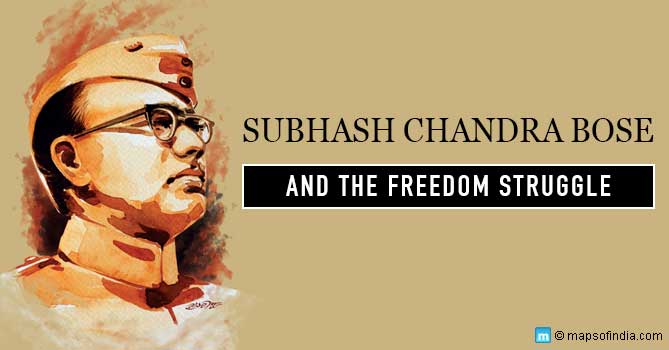
As far as the history of India’s independence struggle against the British is concerned Subhash Chandra Bose remains a key figure. A go-getter right from the start, Bose decided to chart his own path towards India’s independence in spite of knowing how hard it was going to be.
Born in Odisha to a wealthy and prominent family of lawyers, Bose was sent to the most reputed college of Bengal called Presidency College, Kolkata for which he was expelled due to nationalist activities and later sent to Scottish Church College. After his graduation in 1919, he went to the University of Cambridge in England to prepare for the Indian Civil Service. Throughout his career and studies, he was supported by his elder brother Sarat Chandra Bose (1889-1950).
The start
Bose, also known affectionately as Netaji, became part of the Indian struggle for independence when he joined the Civil Disobedience Movement that was being led by Mahatma Gandhi. Though he had been successful at the-then Indian Civil Services (ICS) examinations, Bose chose to fight for the freedom of the country. Later on, he also became an active member of the Indian National Congress (INC). In 1938 and 1939, he was also chosen as the party president. However, he resigned from his position in 1940 and formed the Forward Block.
The branching out
Subhash Chandra was held under house arrest by the British because of how he had been opposing their rule. However, he left the country secretly in 1941 and travelled westwards through Afghanistan to Europe where he sought assistance in his struggle against the British from the Russians and Germans. He visited Japan in 1943 where the royal administration said yes to his appeal for help. It was here that he formed the Indian National Army with Indian war prisoners who had served with the British Indian Army. It was also in October 1943 that he formed a provisional government, one that had been recognised by the Axis Powers during the Second World War.
The end
Under the leadership of Bose, the INA attacked parts of northeastern India and were able to capture a few portions as well. However, in the end, the INA was forced to surrender owing to inclement weather and Japanese policies. Bose, however, was not one to surrender. He attempted to flee and renew his struggle yet again. He escaped on a plane from the Taihoku Airport but he never made it. It is said that his plane crashed at Formosa, now known as Taiwan. At that time, Formosa was ruled by the Japanese. He is said to have suffered third-degree burns and went into a coma and never came out of it.
How did he contribute?
Apart from the fact that he tried to be different, much like the revolutionary extremist freedom fighters of the day, and kept up the spirit of fiery leadership in that critical period of India’s history, there are also several other ways in which he made his own contribution to his motherland’s freedom struggle. The assault by the INA, no matter how short-lived it was, was an important factor that eventually contributed to the British decision to stop their operations and shift back to their own land. This, in the end, did pave the way for India’s independence.
After he was banished to Europe by the British, Bose set up contacts between various European countries and India that may not have existed earlier. He espoused concrete economic planning and showed the way himself. It also needs to be remembered that it was he who set up the Rani Laxmi Bai Fauj, the women’s wing of INA (Azad Hind Fauj). At a time when the British were bleeding the country dry with help from certain insiders, it was his series of radio broadcasts from Berlin that at least attempted to keep the spirits of the country up.
Netaji, without a shadow of a doubt, remains one of the most key figures in the history of India’s independence. He played a crucial role in freeing the country from the clutches of 200 years of British rule in his own inimitable way, much like the other leading lights of the day such as Mahatma Gandhi and Jawaharlal Nehru. Till the last day of his life as an active freedom fighter, he kept the spirit of fighting the British – even at the time of his death he was planning to migrate to Russia and find a new way to combat the British – and it is this persistence and patriotic fervour that needs to be respected more than anything else.
Related Link:




